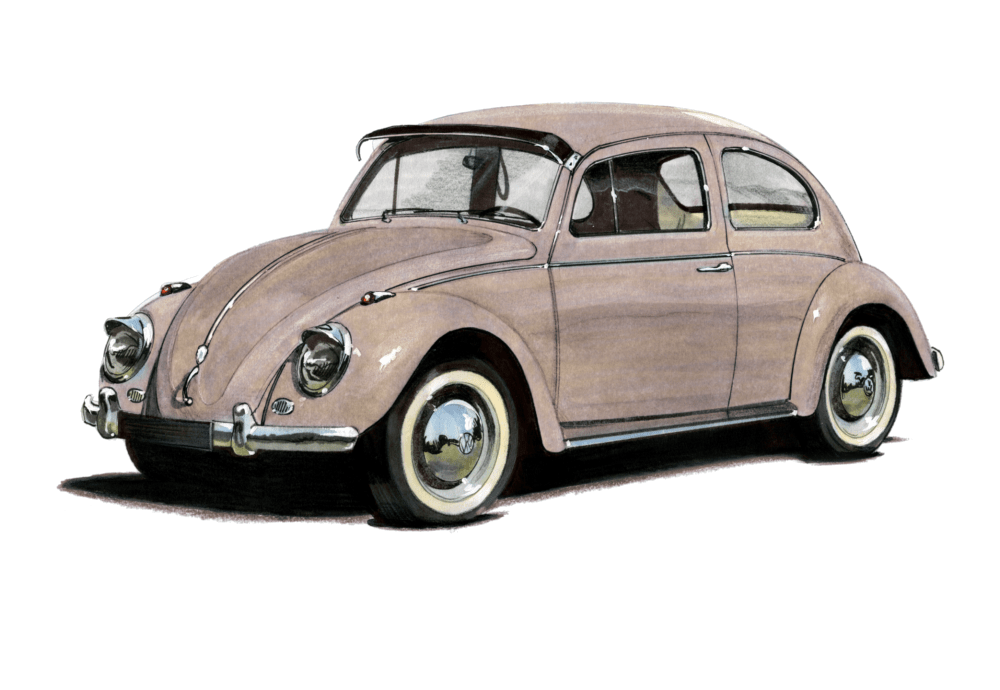
Often recognized as the most iconic car ever to grace the roads, the Volkswagen Beetle holds an esteemed position in the annals of automotive history. This influential vehicle spanning generations and demographics has had its robust engine resonating pure power since its inception in the late 1930s. So, what type of engine does a Volkswagen Beetle have, one might wonder?
The answer to this query greatly depends on the specific model in question as there have virtually been various engine types assigned to the Beetle over its multi-decade existence; both air-cooled and water-cooled, ranging from petrol to diesel, and with a variety of capacities and power outputs.
Initially, the Volkswagen Beetles featured air-cooled, rear-mounted, flat-four engines with modest power output. This particular configuration was in place from the late 1930s to the early 2000s. The earliest edition was released with an 1131cc engine that yielded 25 BHP. As the years passed, these engines were incrementally revised and improved, with the most common engine displacing 1600cc and rendering around 60 BHP, becoming the defacto engine in Beetle models from the mid-1960s onwards—these constitute a significant part of the classic Beetle’s heritage.
Saying goodbye to the air-cooled engines, Volkswagen launched the “New Beetle” in 1998 that embraced a water-cooled front-wheel-drive setup. The New Beetle was found with a diverse range of engine options. The base engine was a simple yet efficient 2.0-liter inline-four with 115 horsepower, but Volkswagen also offered a punchy 1.8-liter turbo-four that made 150 horsepower. In addition, the New Beetle was also available with a 1.9-liter TDI (Turbo Diesel Injection) diesel engine, which was recognized for its remarkable fuel efficiency.
In 2011, the second generation of the New Beetle, which was re-named as the Beetle A5, made its worldwide presence. The new Inline five-cylinder engine was phased out in favor of a new 1.8L turbocharged TSI inline-four mated to a 5-speed manual or 6-speed automatic.
The range-topping Volkswagen Beetle R-Line, which arrived in 2013, boasted a turbocharged, direct-injected 2.0-liter four-cylinder engine giving out 210 horsepower and 207 lb-ft of torque. This model was the fastest and most powerful Beetle Volkswagen offered.
In conclusion, the engine type in a Volkswagen Beetle has significantly evolved throughout its extensive tenure, manifesting the brand’s ethos of continuous improvement and sustained relevance. From air-cooled to water-cooled, petrol to diesel, and varying engine capacities, Volkswagen Beetle engines mirror the ongoing progression of motoring technology. The Beetle stands as a testament to the brand’s capacity for innovation, refinement, and endurance, etching an indelible mark on automotive history through its iconic engine variants. Despite its discontinuation in 2019, the Volkswagen Beetle remains a symbol of reliability and efficiency that is cherished by millions of car enthusiasts.